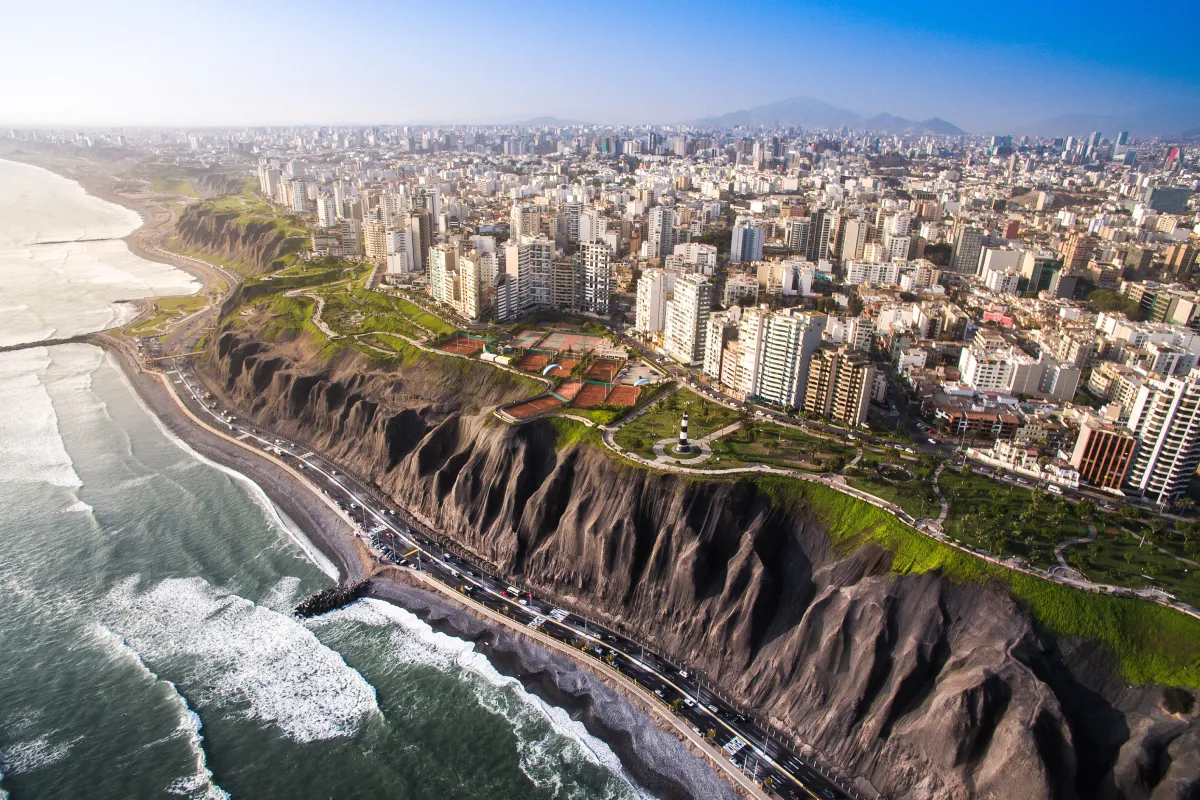
Countries
Employer of Record in Peru
We help you remain competitive for top talent and grow your global team quickly — no entity required

Peru Fast Facts
Download our guide to hiring in Peru.
Hiring in Peru
Peru has become a popular destination for international hiring thanks to its robust IT infrastructure, highly skilled workforce, and advantageous time zone that aligns with North America. But although its workforce is in demand, its labor laws can be complex. With no one main Labor Act governing employer-employee relationships, employers in Peru must look to a variety of legislation including (but not limited to) the Labor Productivity and Competitiveness Act, the Work Time and Overtime Act, the Legal Bonuses Act, and the Collective Labor Relations Act.
With expert guidance, you can employ workers in Peru with confidence, knowing that labor laws are being followed and every contract meets all legal requirements. At Safeguard Global, we offer a range of workforce enablement solutions to help you employ your workers in Peru in full legal compliance.
Relying on an employer of record (EOR) in Peru
An employer of record (EOR) provides an easier way for organizations to hire and pay local talent in Peru. Because of its in-country presence, the EOR can employ the workers a company needs and lease them to that company, taking care to comply with Peru’s labor laws. As a result, the organization doesn’t have to establish a legal presence or manage compliance in Peru.
The EOR can hire and onboard employees in as little as two weeks and manage ongoing responsibilities such as payroll, benefits, and taxes. A full-service EOR can also manage recruitment. Together, these EOR services significantly reduce the administrative burden for an organization.
Visit our Employer of Record services page to learn how we can help you meet your international employment needs in Peru.
Disclaimer: The information provided is for informational purposes only and does not constitute legal or professional advice. Safeguard Global disclaims any liability arising from reliance on this information. Certain content may be sourced from third parties and remains their intellectual property; all other content is owned by Safeguard Global and protected by applicable intellectual property laws. You are encouraged to seek professional or legal advice to address any issues, questions or matters arising from the information contained herein.

Contact Us
Book a demo today
We’d love to learn more about your needs and show you how we can help. Submit the form and we’ll be in touch to schedule a personalized demonstration of our platform and services.
Schedule an appointment
Fill out the form to speak to a rep about how we can help your organization.



















